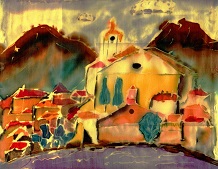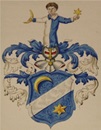 Safaris
Bergsteigen
Wandern
Inselwandern Weltweit
Safaris
Bergsteigen
Wandern
Inselwandern Weltweit
 Europa
Inselwandern
Europa
Inselwandern
 Städtewandern
Städtewandern
 Paintings
Paintings Dirk Rauschenbach
Dirk Rauschenbach
 Safaris
Bergsteigen
Wandern
Inselwandern Weltweit
Safaris
Bergsteigen
Wandern
Inselwandern Weltweit
|
 Europa
Inselwandern
Europa
Inselwandern
|
 Städtewandern
Städtewandern
|
 Paintings
Paintings |
 Dirk Rauschenbach
Dirk Rauschenbach
|
|
zurück Ecuador back Isabela Ecuador Galapagos Isabela Schnorcheln Isla Galapagena
|
|
|
| Bucht vor dem Hotel auf Isabela mit Bar Iguana Bar | Fregattvogel |
|
|
|
| Bucht vor dem Hotel auf Isabela mit Bar Iguana Bar | Fregattvogel |
|
|
|
| Pelikan | |
|
|
|
| Pelikan | Fregattvogel |
| Rosa Flamingos | |
|
|
|
|
|
|
| Blaufusstölpel | Blaufusstölpel |
|
|
|
| Blaufusstölpel | Blaufusstölpel |
| Kugelfisch auf Landgang .......dead | |
| verlassene Schildkröteneier | |
| Arnaldo Tupzia Chamaidan | |
| It seems you might be referring to Isabela Island (Spanish:
Isla Isabela), the largest island in the Galápagos Archipelago, part of
Ecuador. Here’s a summary of key details about it: Key Facts About Isabela Island (Galápagos) Size & Geography: Largest island in the Galápagos, covering 4,586 km² (larger than all other islands combined) Formed by six shield volcanoes, five of which are still active (e.g., Volcán Wolf, the highest point at 1,707 m) Wildlife: Home to giant tortoises (with distinct subspecies due to geographic isolation), marine iguanas, penguins, and Galápagos hawks 1. The Bolivar Channel on the west coast is a prime spot for whale and dolphin watching 1. Human Presence: Population: ~1,748 inhabitants, with Puerto Villamil as the main settlement 1. Historic sites include the Wall of Tears, built by prisoners in a former penal colony 1. Unique Features: Straddles the equator, with volcanic landscapes like Urbina Bay (uplifted coral reefs) and Tagus Cove (tuff cones) 1. |
It seems like you might be referring to the Galápagos Islands. These are a famous group of islands located in the Pacific Ocean, around 600 miles (about 1,000 kilometers) off the coast of Ecuador. The Galápagos are well-known for their unique wildlife, including species such as giant tortoises, marine iguanas, and blue-footed boobies, many of which are found nowhere else on Earth. The islands were made famous by Charles Darwin during his visit in 1835, which helped him develop his theory of evolution by natural selection. The diverse ecosystems and isolated nature of the islands made them a natural laboratory for studying evolution in action. |
![]() 26.07.25 Copyright Dirk
Rauschenbach Koelnerstrasse 293 51702 Bergneustadt
Datenschutzerklaerung 02261 9788972 Mail ccooly(
at) web.de
26.07.25 Copyright Dirk
Rauschenbach Koelnerstrasse 293 51702 Bergneustadt
Datenschutzerklaerung 02261 9788972 Mail ccooly(
at) web.de